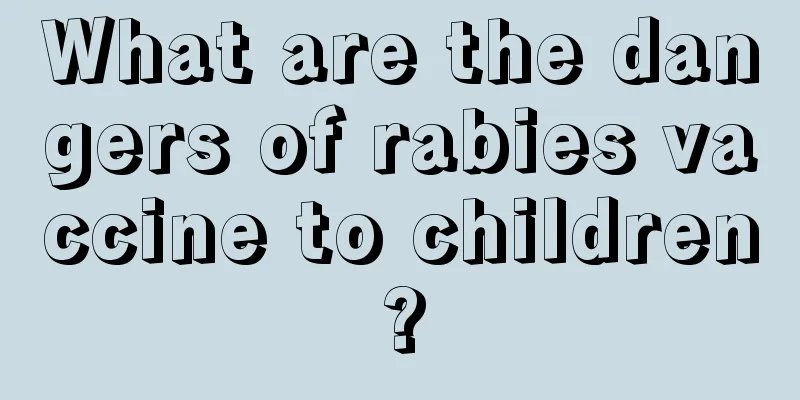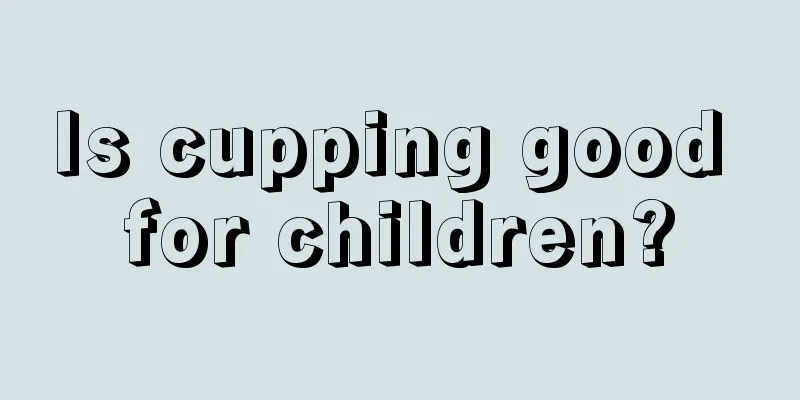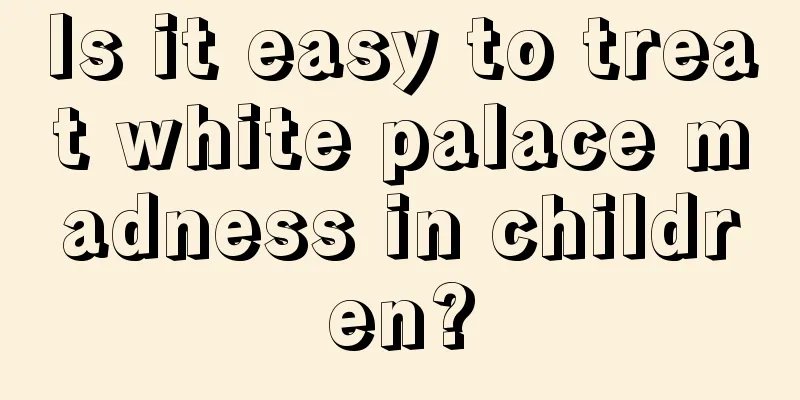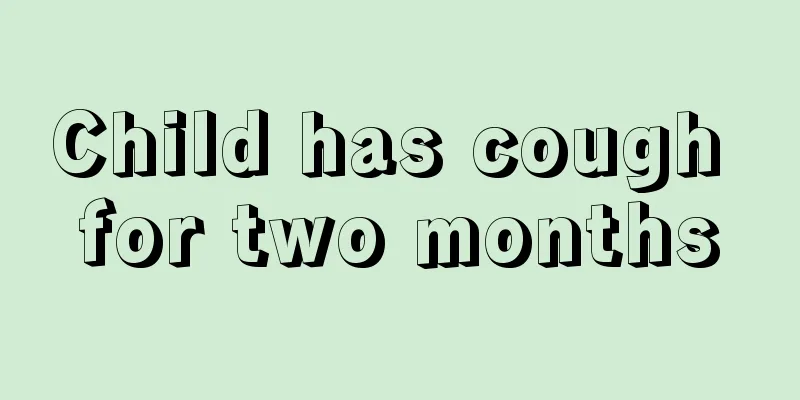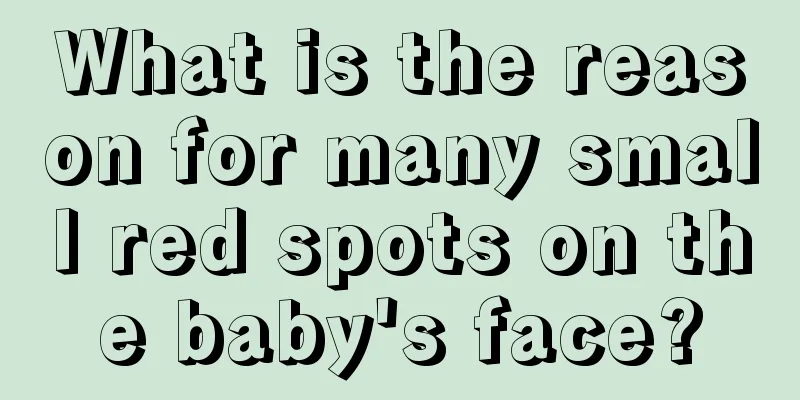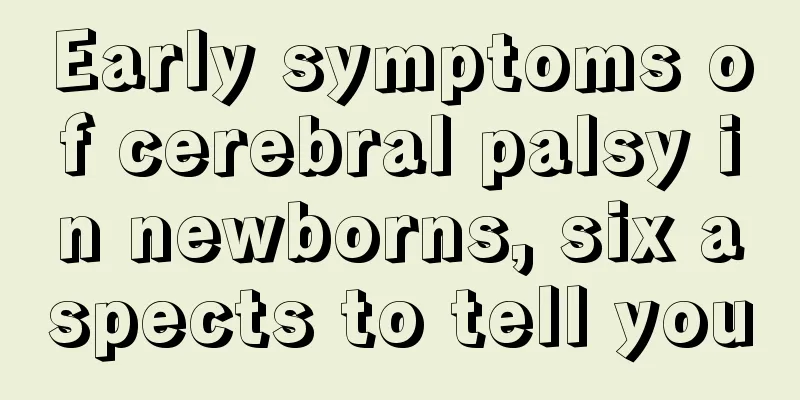Things to note when your child loses teeth at the age of 8
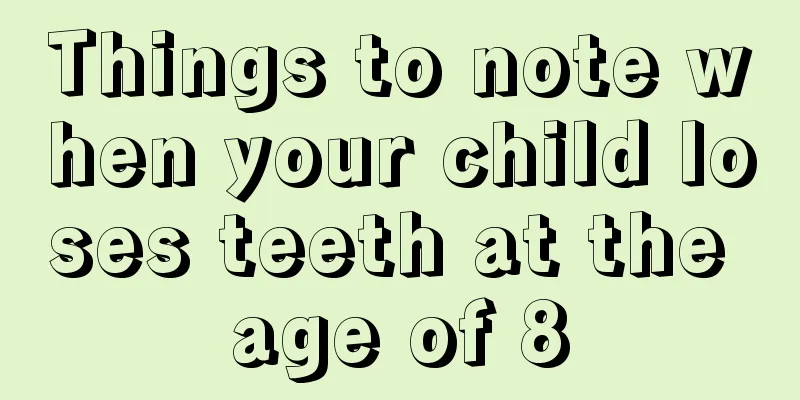
|
We have a saying in our family, "At the age of eight, the dog teeth fall out." It actually means that when children are 7 or 8 years old, their baby teeth will fall out one after another and be replaced by permanent teeth. Most children are in the tooth replacement period between 6 and 12 years old. Some children replace their teeth later. There are many reasons for this, such as delayed development, premature decay of baby teeth, premature loss of baby teeth, etc. So, what are the things to pay attention to when children lose their teeth at the age of 8? Let’s find out together. When the baby is changing teeth, mothers should pay close attention to the baby's teeth. Or when the baby tells you that his teeth are loose, you should also pay more attention to the time when the baby's teeth become loose. If the teeth are loose for too long, it will be detrimental to the growth of permanent teeth later, so you should find a way to extract the teeth that have been loose for too long. Some parents do not care about the growth of their baby's permanent teeth and do not care how the teeth grow. In fact, this is also wrong. For babies, because they will lick their teeth with their tongues when they are growing, this may cause their teeth to grow crooked. What parents need to do is to always pay attention to the growth process of their baby's permanent teeth. If they grow crooked, they should go to the hospital for correction. Some babies have problems with their bones, and these problems will also be reflected in the growth of their teeth. Therefore, some babies' teeth grow faster after they grow out, while some babies' teeth never grow and only the tips of their teeth appear. In this case, it is possible that the baby has oral problems that cause the baby's teeth to not grow. It is best to take your baby to the hospital for examination as soon as possible. When the baby is changing teeth, parents should not only focus on the tooth that is to be replaced. In fact, they should also look at the condition of the teeth next to the tooth that is to be replaced. Sometimes, there is nothing wrong with the replaced tooth, but there is a problem with the teeth next to it. If there is a problem with the adjacent tooth, it will affect the growth or quality of the replacement tooth. When babies are changing their teeth, some of their habits will change, especially they like to lick their gums with their tongues. This is wrong. Or the baby may not brush his teeth after eating, or not clean his mouth after eating sweets, etc. This kind of bad habit will cause dental problems for babies when their teeth are growing. Generally, these dental problems are irreversible.Why do some babies look different after their teeth have changed? This is because during the teething process, the growth of the baby's teeth changes, causing problems with the baby's face shape. This is also a sign of uneven teeth in babies. When this happens, it is important to correct the baby's teeth as soon as possible and wear braces, otherwise it will be difficult to wear them when he grows up. When babies change their teeth, they may also develop some dental diseases. Generally speaking, children will develop apical disease when they are replacing their teeth, and deciduous molars are prone to caries during the period of replacement of teeth. In this way, the baby will suffer from unexpected dental diseases. In this case, parents should pay attention to the baby's oral hygiene and seek treatment as soon as possible. When the baby is changing teeth, the teeth need to be ground and exercised. Therefore, in this way, the baby's teeth will become stronger, more powerful and have a stronger bite. Therefore, at this time, it is good to feed your baby durable foods, such as nuts. The above are the things to pay attention to when a child loses teeth at the age of 8. During this period, you should pay attention to oral hygiene, brush your teeth in the morning and evening, and rinse your mouth with light salt water after meals. Baby teeth begin to loosen, so avoid artificially shaking the deciduous teeth to avoid secondary infection. After the deciduous teeth fall out, educate your baby to avoid licking the gums with his tongue to prevent local gum growth from affecting the eruption of permanent teeth. Pay attention to comprehensive nutrition in the diet, and provide appropriate calcium supplements, etc. |
<<: What are the causes of sleepiness in children?
>>: What causes rhinitis in children?
Recommend
What to do if your child's eyes are tearing
Tearing eyes is a common problem for adults, and ...
One year and ten months old baby intelligence
When a baby is just born, its brain is not fully ...
When do baby teeth change?
When children reach a certain age, their deciduou...
What causes baby's palms to sweat?
Today's babies are the sweethearts of the fam...
What is the reason for the hard stool of eight-month-old baby?
In the hot summer. It is the season when liver fi...
There is a lump behind the child's ear
There are the most lymph nodes behind the ears. W...
Do mothers know the reasons why infants and young children do not sleep well?
Nowadays, many children often show poor sleep qua...
What to do if a child has a persistent cough
Coughing is the most common symptom of illness in...
What are the recipes for picky eaters?
Children nowadays live a carefree life and are ca...
Children often have headaches_Children always say headaches
It is a very common condition for children to hav...
Why does the baby always suck his lips?
Watching the baby grow up is the happiest thing f...
What to do if your baby's tooth is broken
Children are very naughty when running and jumpin...
What are the symptoms of sensory integration disorder in children?
Before the baby is born, the baby's sensory i...
What can children drink to grow taller?
Many children want to have a perfect height. Nowa...
Can I bathe my baby when he has a fever? Parenting experts tell you
Many parents think that they can give their baby ...
